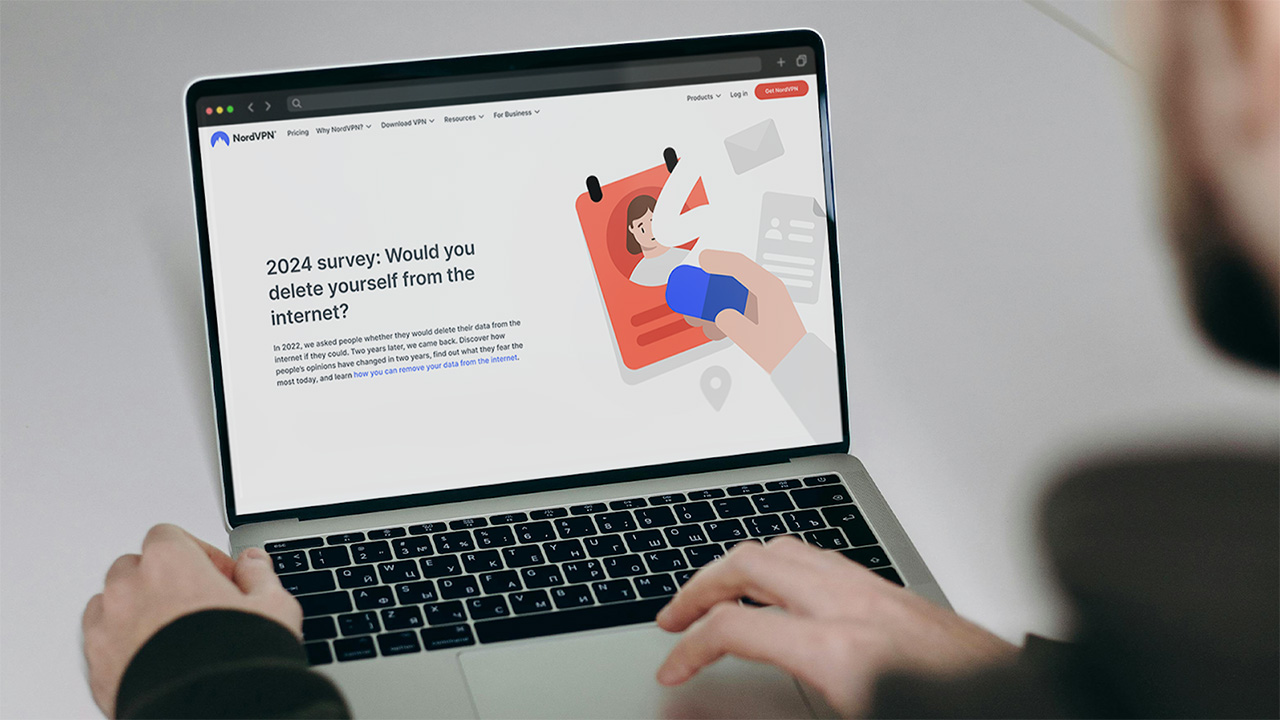Would you pay to access the internet anonymously? One third of Americans would
New study finds 152 million Americans would remove themselves from the internet if they could

According to joint research by cybersecurity company NordVPN, developers of one of the best VPN services available, and personal data removal company Incogni, millions of people would like to delete themselves from the internet. 152 million Americans would like to have their personal data removed from the internet, an increase from Nord's 2022 research. Globally, 35% of people want to be removed, up from 30%, with the US and Canada topping the list.
For Americans, almost half (48%) cite companies collecting, selling, or simply using their data to benefit third parties as their reasons for being deleted, and almost half feel their devices will eventually be hacked. Additionally, 40% feel there's no reason for their names to be on the internet, 41% express a lack of trust in it, and one fifth fear manipulation by third parties.
"The shift in people's attitudes and their increasing need to delete their presence from the internet highlights a trend," says Marijus Briedis, NordVPN's CTO. "People are no longer passively accepting the idea that their data should live on the internet forever. There is a growing demand for control, empowerment, and the right to be forgotten."
Areas of concern
Data shows the majority of Americans (64%) would prioritise deletion of their financial information and 31% would seek to remove their old dating/social media profiles and any embarrassing uploads. However, 44% revealed they don't know how.
Briedis believes the next generation of users will push technology providers and policymakers to rethink how personal data is handled online, saying "anonymity is no longer a luxury but a necessity." Although not currently possible, a third of Americans would be willing to pay up to $100 to use the internet anonymously at all times. Shockingly, 5% would even pay up to $1,000.
How can you protect your data?
There are a number of ways you can protect your data online and using a VPN is a crucial tool in doing so. All the top VPNs offer high levels of privacy and security, masking your IP address and encrypting your data. All VPNs we recommend are highly rated and available at a range of price points - so there is a VPN to suit anyone.
However, VPNs aren't a cure for everything. Whilst they protect privacy, they don't grant total anonymity and performance can be impacted due to your connection travelling further. Even the best free VPNs are subjected to certain limitations and it's essential you sign up for a reputable VPN provider – our guides are the perfect place to start.

Data brokers collect your personal information, use it to build up a profile on you, and then sell it to third-parties. Information such as your name, social media accounts, shopping history, and IP address are valuable to advertisers who wish to target you. Using a data removal service, such as Incogni, helps remove this information from data brokers. They scan websites and data brokers for your data, submit removal requests, and then undertake regular monitoring to protect your personal information.
Ultimately, you should be mindful of what you share online and protect your accounts. Think about adjusting your privacy settings for who can view your profile and ask yourself the question, "do I want this on the internet forever?" Using strong, unique passwords and enabling multi-factor authentication adds an extra layer of security to your accounts.

George is a Staff Writer at Tom's Guide, covering VPN, privacy, and cybersecurity news. He is especially interested in digital rights and censorship, and its interplay with politics. Outside of work, George is passionate about music, Star Wars, and Karate.
